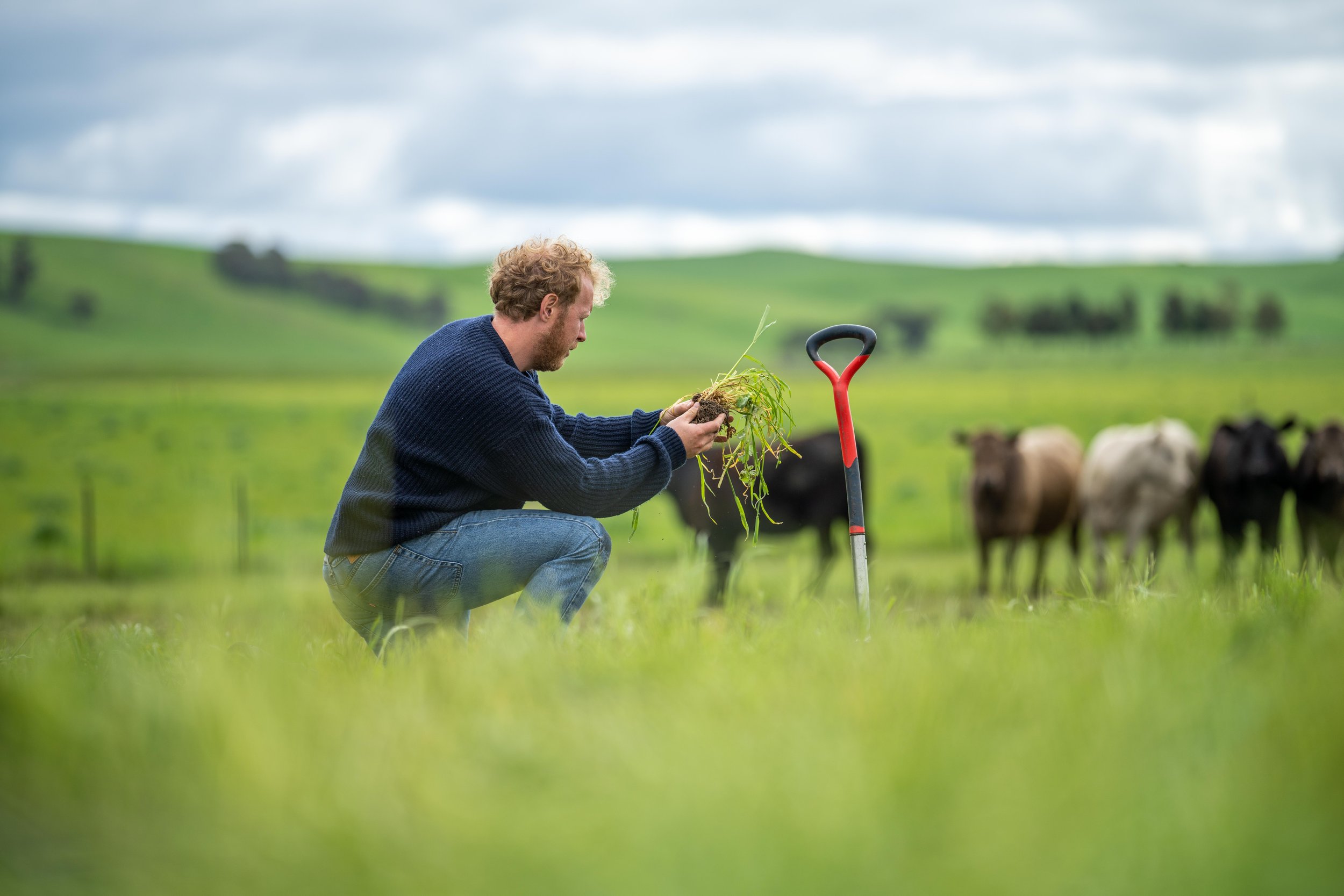Pressure mounts on farmers to meet supermarkets’ latest demands
Farming has never been an easy business.
But if some of the challenges, like the weather and market volatility, have long been a concern, the avalanche of changes now raining down on farmers’ heads - from the end of land-based subsidies to climate change - are unprecedented in modern times.
The latest challenge for those who make their living producing food and caring for the landscape looks like it is coming from supermarkets concerned about the environment and the ability of the soil to keep on producing food.
Waitrose announced last week (week ending May 12) that it was launching an initiative to get its 2,300 farm suppliers to switch to regenerative agriculture within ten years, citing the warning that without change, we could have fewer than 60 harvests left before the soil effectively gives up.
By 2035, the store’s Executive Director James Bailey has pledged, all its UK produced meat, milk, eggs, fruit and vegetables, will come from farms operating regeneratively.
There is, Mr Bailey admitted to BBC Radio 4’s Farming Today programme, no established standard for regenerative farming. But, broadly speaking, it requires farmers to improve their soil quality, reduce cultivation, cut back on chemicals and incorporate livestock grazing into their farming mix.
That’s a big switch for many farmers already struggling with an end to their basic farm payment, which is disappearing as a result of Brexit, and working out how to access a range of new environmentally-based support payments under the umbrella of ELMS – Environmental Land Management.
Waitrose, part of the John Lewis group, might seem, at first glance to be going it alone with this initiative on the basis that its customers will be happy to pay the premium that food produced to these new standards will require.
Yet other major supermarkets are already making similar demands of their suppliers, insisting they comply with a range of requirements, from accreditation under the Linking the Environment and Farming (LEAF) Marque to meeting standards set by the Red Tractor Scheme.
Even Jeremy Clarkson is dipping his toe into the regenerative farming market, showcasing the work of contractors Wildfarmed, who have been given a chance to try out their methods at Diddly Squat Farm in the latest in the Amazon Prime TV series.
Reaping the rewards of regenerative agriculture, when it works, could come in many forms. Lower input costs might well be offset by reduced yields, but a healthier soil base and a more nature-friendly farm should be seen as worthwhile benefits, whatever the financial costs.
The recognition that, as a farmer, you are not purely profit-driven but keen to farm in a way that looks to the long term and leaves room for nature, ought to be another benefit - and the credit for making the changes necessary must come back to the farmer.
In some cases that will mean not just getting on with a regenerative policy and staying firmly under the radar, but shouting about it and working to ensure consumers understand that this is not just a supermarket initiative but involves hard work on the ground.
Supermarkets have been calling the shots in agriculture for decades. They will say they are both doing the right thing and also responding to customer demands by insisting suppliers adopt environmentally friendly farming practices.
There is an argument that says some consumers do now take a range of factors into account, including the impact on the environment, when they choose what to buy and that in taking their lead from consumers supermarkets are both responding to the market and behaving responsibly.
But there is another powerful factor in play when customers make their choices at the supermarket – and that’s price. James Bailey, speaking on Farming Today, was optimistic about the response of Waitrose customers if the store puts up the price of food to cover the costs of improving the environment.
“I think in some instances we need to consider that the price should go up because the value of food at the moment needs reappraising by customers. Not in every instance, but once you understand the impact of the food system on climate change, on soil, on nature,” he said.
“I think we need to go on a slow but maybe disruptive journey in informing customers how important regenerative agriculture could be – and that’s a journey we’re prepared to go on.”
Whether or not the customers at other supermarkets, including the discounters like Lidl and Aldi who have taken an ever-greater share of the market, will be as supportive is another matter – especially when many customers are struggling financially.
But a marketing and communications strategy that gets the message across to customers that those who manage the land are making the changes for the benefit of the environment might be one way to gain acceptance that food prices must rise.
There is widespread agreement now that changes in the way we manage the land are vital for the long-term future of farming, the restoration of wildlife and to mitigate climate change.
Regenerative farming has a big part to play. But if it means paying more for the food we buy, in an era of food banks and a cost-of-living crisis, then those farming changes need to come with the right messaging, so everyone knows who is doing the difficult work – and why.

